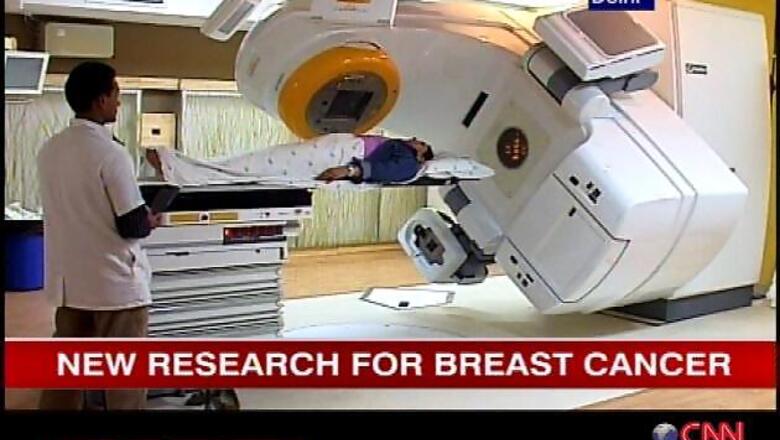
views
London: Breast cancer is "not one disease, but 10 different diseases", according to a "landmark" study that could revolutionise its treatment. An international team of researchers that analysed breast cancers from 2,000 women said the classifications could help improve treatment by tailoring drugs for patients' exact type of breast cancer and also predict survival more accurately.
It will take at least three more years for the findings to be used in hospitals, the researchers said.
In the study, published in the journal Nature, the team analysed genetics of frozen breast cancer samples from 2,000 women at hospitals in the UK and Canada.
They looked in huge detail at the genetics of the tumour cells - which genes had been mutated, which genes were working in overdrive, which were being shut down.
They found that all the different ways the cells changed when they became cancerous could be grouped into 10 different categories, named IntClust one to 10. Each tumour within a particular group shares similar genes and different women with the same type have similar odds of survival.
"Breast cancer is not one disease, but 10 different diseases," lead researcher Prof Carlos Caldas, was quoted as saying by the BBC News.
He added: "Our results will pave the way for doctors in the future to diagnose the type of breast cancer a woman has, the types of drugs that will work and those that won't, in a much more precise way than is currently possible."
At the moment, breast cancers are classified by what they look like under the microscope and tests for "markers" on the tumours. Those with "oestrogen receptors" should respond to hormone therapies, while those with a "Her2 receptor" can be treated with Herceptin.
The vast majority of breast cancers, over 70 per cent, should respond to hormone therapies. However, their reaction to treatment varies wildly.
"Some do well, some do horribly. Clearly we need better classification," said Prof Caldas.
Dr Harpal Singh, of Cancer Research UK that funded the study, said: "This study will change the way we look at breast cancer, it will have an enormous impact in the years to come in diagnosing and treating breast cancer."
Dr Singh said the charity would begin using the new criteria in clinical trials it funded. Outside of trials for new cancer drugs, the new breast cancer rulebook could take some time to directly benefit patients, he added.
Baroness Delyth Morgan, chief executive of the Breast Cancer Campaign, said the study could "revolutionise the way breast cancer is diagnosed and treated".
"Being able to tailor treatments to the needs of individual patients is considered the Holy Grail for clinicians and this extensive study brings us another step further to that goal."
Despite great strides being made in breast cancer in recent years, the disease is still one of biggest killers which claims the lives of almost 1,000 women a month in the UK alone.

















Comments
0 comment